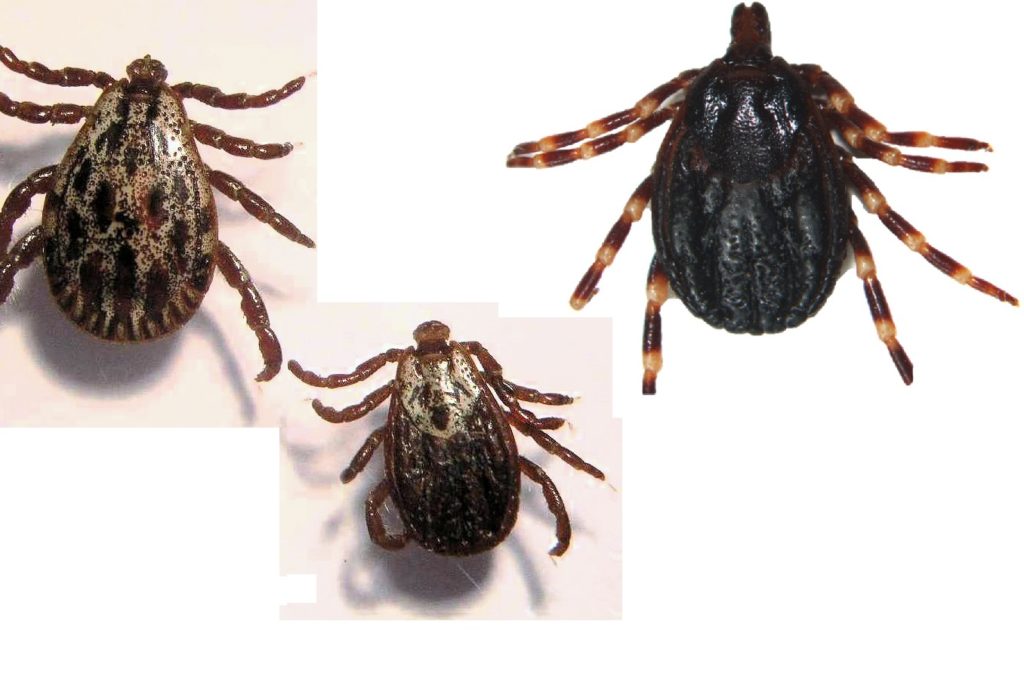Hyalomma and riparian forest-tick in the Hanover area
For the first time, was found in the area of Hannover a colorful tick (or riparian forest tick). The University of Veterinary medicine Hannover (TiHo) have been reported. According to the Veterinarians, the „ was;Tick especially for dogs very gefährlich“. The four-legged friend could be infected with the dog babesiosis (dog malaria). Also have left, according to the doctors is very likely that the Hyalomma tick in the North of Germany. These had fled because they as „Vectors of Crimean-Congo Viren“ . Appropriate protective measures are recommended on the part of the TiHO.
The TiHo is launching an investigation to the actual distribution of the new species of Ticks in the Region of Hannover. To this end, the University to the support of the population. “We ask for our research project about us Hyalomma or ornate cow tick, indicating the discovery site to send”, asks Professor Dr. Christina Strube in a press release. The location could be specified using either the zip code or GPS data. If the ticks found on an animal, asks the University to name the species.

How to recognize tick a Riparian forest?
According to the TiHo to recognize the riparian forest tick or colorful tick (Dermacentor reticulatus) in the white-marbled dorsal structure (see image). The marbled back plate covered with the male the whole body, in females, only the anterior third of the Body. The outer edge is colored orange. The colorful tick females are about five millimeters in size. If you have sucked, you can swell up to a size of 16 millimeters. The males are smaller than females and do not increase the sucking action.
How dangerous is the ornate cow tick is?
The ornate cow tick can transmit the Virus Babesia canis canis, which can destroy the red blood cells in the blood of dogs. The animals suffer after an infection often have a fever and are weakened, because the tissues and organs are not sufficiently supplied with oxygen. The dogs need intensive therapy to recover from the diseases. In some cases, the dog malaria can be lethal. “Dog owners should therefore be particularly attentive, and a lot of value to an effective protection against Ticks,” advise the experts of the TiHo.
How to recognize a Hyalomma tick?
“Ticks of the genus Hyalomma are striking, and good to see your striped legs,” explains the TiHo-Team. The Hyalomma tick is about five times as large as the domestic ticks (common wood tick). In addition, the Hyalomma can move-tick very fast.
How come the Hyalomma tick to Germany?
The TiHo Team suspected that the tropical and sub-tropical tick species has been introduces of migratory birds to Germany. Usually, this tick species is not in Germany. The hot summer of 2018, but have created favorable conditions for the animals. The University stresses that the Hyalomma was tick found on several occasions to horses in the Region of Hannover.
How dangerous is the Hyalomma tick is -?
“Hyalomma species can transmit, among other things, the Crimean-Congo Virus as well as bacteria of the genus Rickettsia,” warns the TiHo. Both pathogens could be dangerous to humans and severe fever disease trigger. During Crimean-Congo virus could not yet be demonstrated by a tick bite in Germany, researchers found at the end of Rickettsia already, which can trigger in humans, the dangerous typhus.
With help you!
The Institute for Parasitology of the Foundation University of Veterinary medicine Hannover would now like to examine how far the new species of Ticks are actually widely used, and whether they are infectious agents. If you find any of the above species of Ticks, would the Institute be sent with the indication of the discovery site. The shipping address is: Stiftung tierärztliche Hochschule Hannover, Institute for Parasitology,Professor Strube, Buenteweg 17, 30559 Hannover, Germany. (vb)
